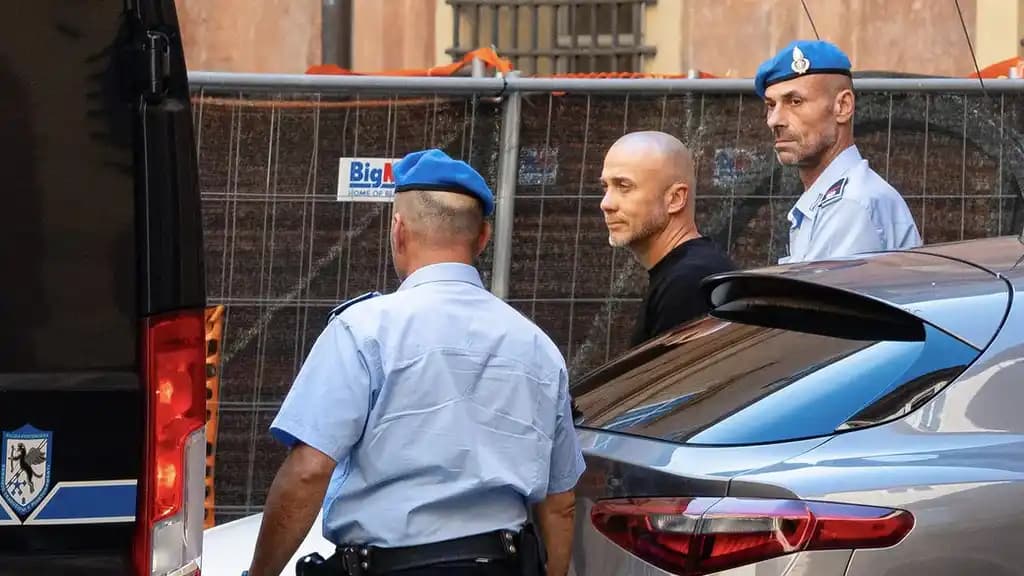We're loading the full news article for you. This includes the article content, images, author information, and related articles.
The unsolved sabotage of a key Russian gas pipeline continues to impact global energy markets, affecting fuel and fertiliser prices in Kenya, as a Ukrainian suspect alleges mistreatment in a high-stakes international investigation.

GLOBAL - A Ukrainian former military officer, Serhiy Kuznetsov, has initiated a hunger strike in an Italian prison, alleging mistreatment by authorities aimed at coercing a confession for his supposed role in the 2022 sabotage of the Nord Stream gas pipelines. Kuznetsov, 49, was arrested in Italy on August 21, 2025, based on a European arrest warrant issued by Germany, which is leading the ongoing investigation into the deep-sea explosions.
In a handwritten letter released through his lawyer, Nicola Canestrini, Kuznetsov claims he is being held in a high-security facility and that his vegetarian diet has been ignored for months in an effort to pressure him. He began refusing food on October 31, 2025, to demand respect for his fundamental rights. Ukraine's Human Rights Commissioner, Dmytro Lubinets, has expressed concern over Kuznetsov's deteriorating health and has appealed to the Italian Ministry of Justice. The Ukrainian Ministry of Foreign Affairs confirmed it is providing consular support and has called for his return to Ukraine.
On September 26, 2022, a series of underwater explosions ruptured three of the four pipelines comprising Nord Stream 1 and 2, which were designed to transport natural gas from Russia to Germany under the Baltic Sea. The incident, widely considered a deliberate act of sabotage, occurred months after Russia's full-scale invasion of Ukraine and triggered a massive release of methane gas. Although neither pipeline was actively delivering gas to Europe at the time, the destruction eliminated any short-term possibility of resuming Russian gas flows, causing a spike in European energy prices and heightening geopolitical tensions.
Investigations were launched by Germany, Sweden, and Denmark. While Sweden closed its inquiry in February 2024 citing a lack of jurisdiction, the German-led investigation remains active. Responsibility for the attack has not been claimed, and theories have pointed towards various state actors, including Russia, the United States, and a pro-Ukrainian group. Ukraine's President Volodymyr Zelenskyy has consistently denied his country's involvement.
German investigators have increasingly focused on a theory involving a pro-Ukrainian group that allegedly used a 15-metre sailing yacht, the *Andromeda*, to carry out the attack. The investigation has reportedly identified a team of up to seven individuals, including divers and soldiers, who chartered the yacht from Rostock, Germany. Traces of military-grade explosives found on the vessel reportedly match those from the blast sites.
Recent reports from November 2025, citing sources close to the German investigation, suggest the operation may have been supervised by Ukraine's then-commander-in-chief, General Valerii Zaluzhnyi. Kuznetsov is suspected by German authorities of being a key organiser of the sabotage group. He denies the allegations, stating he was in Ukraine at the time of the explosions. An Italian court in Bologna approved his extradition to Germany in late October 2025, a decision his legal team is appealing for a second time.
While the investigation unfolds in Europe, the economic consequences of the Nord Stream sabotage have had a discernible global reach, including in Kenya. The destruction of the pipelines exacerbated the volatility in European natural gas markets, which are a key benchmark for global energy prices. This disruption contributed to higher global prices for crude oil and liquefied natural gas (LNG), directly influencing the cost of petroleum imports into Kenya.
Furthermore, natural gas is a primary feedstock for the production of nitrogen-based fertilisers, such as ammonia and urea. The European energy crisis triggered by the pipeline destruction led to soaring production costs for fertiliser, a shock that rippled through global supply chains. For Kenya, a nation heavily reliant on imported fertiliser for its agricultural sector, these global price hikes have had a significant impact. The increased cost of this critical input has put pressure on farmers, affected crop yields, and contributed to food price inflation, a challenge the Kenyan government has sought to mitigate through subsidy programs. According to a 2025 World Bank report, fertiliser prices are projected to continue rising, posing an ongoing challenge to Kenya's food security and economic stability.
The case against Serhiy Kuznetsov and the broader mystery of the Nord Stream sabotage thus remain not only a matter of international intrigue but also a significant factor in the complex web of global economics that directly affects households and industries across East Africa.
Keep the conversation in one place—threads here stay linked to the story and in the forums.
Sign in to start a discussion
Start a conversation about this story and keep it linked here.
Other hot threads
E-sports and Gaming Community in Kenya
Active 9 months ago
The Role of Technology in Modern Agriculture (AgriTech)
Active 9 months ago
Popular Recreational Activities Across Counties
Active 9 months ago
Investing in Youth Sports Development Programs
Active 9 months ago